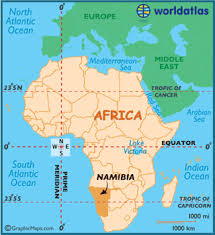The Board of Directors of the African Development Bank has approved a loan of $226.5 million (ZAR 3 billion) to finance the Namibia Economic Governance and Competitiveness Support Programme (EGCSP).
The operation is the Bank’s maiden policy based operation in Namibia and the first of two programmatic series for the 2017/18 and 2018/19 fiscal years.
The EGCSP was well received by the Board who commended the quality of the operation and was satisfied with the Namibian government’s strong commitment to the implementation of reforms.
The programme will support the strengthening of public financial management and improve the quality and efficiency of public sector spending, while laying a solid foundation for industrialization through support to critical business environment reforms.
“The EGCSP is designed to address emerging vulnerabilities undermining macroeconomic stability and support the Government’s ongoing bold structural reforms aimed at driving long-term job creating growth and reducing income equality,” says Senior Vice-President Charles Boamah, who presided over the AfDB Board meeting.
It is aligned with the Bank’s Country Strategy Paper for Namibia; two of the operational priorities of the Bank Group’s Ten-Year Strategy; and the High 5s agenda on industrialization and improving the quality of life.
Namibia registered one of the highest average growth rates in Africa over the past 20 years and made some good progress in reducing poverty.
However, more progress is needed to further reduce unemployment, and income inequality. These challenges are compounded by bottlenecks in public financial management (PFM) and the business environment, which limit the pace of industrialization and economic diversification.
In 2016, Namibia recorded a sharp slow-down in real gross domestic product (GDP) from 5.3% in 2015 to 0.2%. As a share of GDP, the fiscal deficit at 8.3%, the current account deficit at 13.7%, and public sector debt at 39.8%, had also markedly increased, while international reserves at 2.8 months of imports were below the international benchmark of 3 months.
Guided by Vision 2030, the National Development Plan, the Harambee Prosperity Plan and other sector policies and strategies, the Government has embarked on fiscal consolidation and wide ranging PFM and business environment reforms to address these challenges and these are beginning to yield positive results.
The African Development Bank, in collaboration with other development partners, will continue to support the government’s bold steps geared towards addressing the country’s short, medium and long term development challenges.

